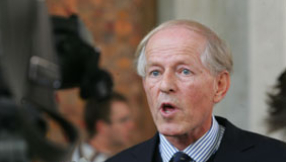
Have you ever visited another country without knowing the native language? Or tried to speak to someone who doesn't speak the same language as you?
I visited Brazil recently, and as an English speaker in a Portuguese nation, I thought about languages and how they separate and connect us.
Unless we speak the language of those around us it makes it extremely difficult to truly know them.
Upon first arrival
When I stepped into the terminal at São Paulo's Guarulhos International Airport I was inundated in a sea of milling people. The cacophony of their voices was even more jarring because I couldn't understand anything they were saying. I stared at people conversing and no helpful subtitles appeared near them to guide me through the narrative. My English ears searched for words it could understand but found none. I felt isolated, inadequate and helpless.
This must have been a little of what the people at Babel felt when God first confused the languages. Where unity and peace existed, suddenly, there was an impenetrable and invisible wall. It separated them emotionally, intellectually and spiritually, and eventually physically.
(Un)settling in
You can imagine how unnerving that was. I immediately wanted to jump back onto the airplane and get back to where I belonged - to people who could understand me and who I could understand. The prospect of being in Brazil for months seemed too daunting. But I'd gone to visit my sister and there was no turning back. Plus, my bilingual sister would have to stand in the gap until I learned some more Portuguese.
But for the entire five months that I was in Brazil I remained attached to my sister's hip. The translator in my brain didn't have enough information to help me communicate without a human translator. I met her friends and their families and we conversed through her. I applied my Portuguese lessons, listened carefully but continued to flounder.
Having a translator is good...but not great
While having my sister as a translator was my saving grace, the conversations were. Since I needed an intermediary to know any of her friends, there remained a wall separating me from them. Any authenticity was coloured by my sister's understanding of both parties. She subconsciously weighed intent and translated accordingly. And even then, she didn't fully understand us. Despite her best efforts, something was lost in translation. I couldn't truly know them and they couldn't truly know me.
And that's how it goes with our relationships with God
God has given us every opportunity to communicate with Him for ourselves, without an intermediary. Yes, we have prophets and teachers who "translate" God's spoken and written word, but His intention isn't for us to rely solely on our brothers and sisters to hear from Him. He also doesn't want us to feel isolated from Him, or helpless and inadequate in knowing Him.
The Holy Spirit knows the language of our hearts and has given us the ability to hear and understand Him. God's promise to us in Ezekiel chapter 36, verses 26-27 confirms this.
"I will give you a new heart and put a new spirit within you...I will put My Spirit within you and cause you to walk in My statutes, and you will keep My judgments and do them."
God's restoration of our true language
The Holy Spirit reveals God's word, His character and our characters. He communicates with us even more precisely than any human language because He knows us at our core. What we lost at Babel in relating to one another He's restored to an even greater degree. We have a new spirit to communicate with Him and with others. Where human translators are limited, He isn't. As our translator, nothing is lost in translation.













